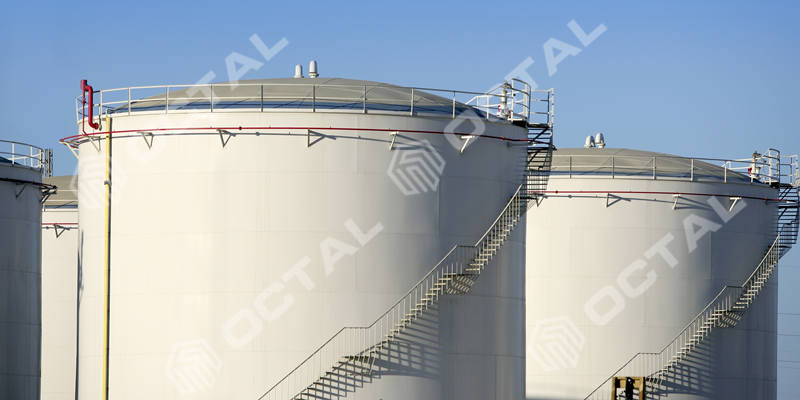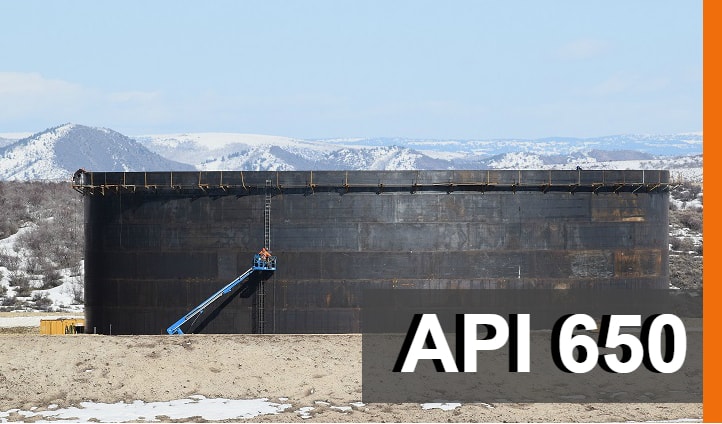Exploring API 650 Welding Inspection Standards for Safe Tank Fabrication
Wiki Article
The Benefits of Welding Assessment for Improved Safety and Performance
Welding inspections are crucial for making certain that frameworks satisfy strict industry criteria. They play an essential function in determining defects early, therefore boosting security and reducing the threat of disastrous failures. In addition, these assessments can result in significant price savings by preventing pricey fixings and downtime. As companies intend for enhanced efficiency and dependability, the significance of a durable evaluation process can not be overemphasized. What other advantages might emerge from a dedication to comprehensive welding examinations?Making Sure Conformity With Market Requirements
Ensuring conformity with market criteria is vital for keeping high quality and safety and security in welding jobs. Abiding by recognized methods not only secures employees but likewise enhances the toughness and efficiency of the end product. Welding examinations carried out at numerous phases of the process assistance recognize any variances from these criteria, enabling timely restorative activities. This proactive method minimizes the risk of failures that might result from ineffective workmanship.Additionally, conformity with sector criteria fosters count on among stakeholders, consisting of customers, governing bodies, and the labor force. It indicates a dedication to quality and liable techniques, which can bring about increased business opportunities and an one-upmanship in the market - API 650 Welding Inspection. Regular inspections also guarantee that strategies and products used align with the most recent technological developments and safety regulations. Ultimately, adherence to sector criteria is not just a regulative demand but a cornerstone of quality control in welding jobs
Enhancing Security Through Very Early Discovery of Problems
While the primary goal of welding assessments commonly focuses on compliance, they play an important role in improving safety and security by making it possible for the very early detection of flaws. Recognizing concerns such as incomplete combination, cracks, or porosity throughout inspections can greatly minimize the risk of catastrophic failings. Early discovery permits prompt interventions, making sure that damaged welds do not endanger structural honesty.Furthermore, organized evaluations foster a culture of security within companies by highlighting the importance of quality assurance. This proactive strategy not just shields workers but likewise safeguards the surrounding setting. Routine inspections can disclose fads in defect incident, allowing for modifications in welding methods and training programs to resolve underlying concerns.
Consequently, welding evaluations act as an important protect, strengthening general safety and security and efficiency by recognizing flaws prior to they rise right into major hazards. This commitment to quality straight adds to the long life and reliability of welded frameworks.
Lowering Prices by Avoiding Failures
By executing extensive welding assessments, organizations can efficiently lower expenses connected with failings and revamp. The aggressive identification of issues throughout the welding process reduces the risk of catastrophic failures that can cause expensive repair work or replacements. Early detection permits prompt interventions, which stops the acceleration of small concerns right into major issues that stress sources and budget plans. Additionally, by ensuring that welds fulfill specified requirements, organizations can avoid delays in job timelines caused by the requirement for substantial rework or added inspections later in the procedure. This not only saves money yet also boosts operational efficiency. Moreover, an online reputation for high quality workmanship can bring about enhanced consumer contentment and repeat company, further adding to economic security. In general, spending in welding inspections is a strategic technique that cultivates expense financial savings while safeguarding the honesty of bonded structures.Improving Efficiency and Long Life of Frameworks


Welding evaluations play a vital duty in enhancing the efficiency and long life of frameworks, as they confirm that welds are implemented to the highest possible requirements. By recognizing problems early in the welding procedure, examinations protect against weaknesses that can endanger architectural integrity. This aggressive technique assurances that the products utilized satisfy needed specifications, thereby maximizing their load-bearing capacity and strength.
Regular tracking of welding practices adds to the general high quality of construction projects. When welds are verified for conformity with industry criteria, the capacity for tiredness and failure over time is substantially decreased. Structures that are developed with appropriately checked welds are most likely to experience less maintenance problems and improved toughness.
Inevitably, rigorous welding examinations not only reinforce the prompt efficiency of a framework but likewise prolong its operational life-span, supplying long-term worth to both building contractors and end-users alike.
Fostering a Society of Quality and Reliability
A commitment to quality and reliability in welding methods greatly adds to the total success of building and construction tasks. They foster a culture that urges precise interest to information and adherence to market requirements when organizations prioritize these values. This culture not only boosts the skill level of welders but also promotes liability and teamwork among all stakeholders entailed in the task.
Routine welding evaluations function as More Bonuses a cornerstone in this social change, enhancing the value of constant efficiency and precaution (API 650 Welding Inspection). By implementing extensive inspection procedures, business can recognize possible defects early, mitigating risks and avoiding expensive rework. Furthermore, a concentrate on quality and dependability imparts self-confidence among partners and clients, resulting in more powerful partnerships and boosted reputations
Inevitably, cultivating a culture of quality and dependability in welding practices not only elevates task end results but additionally ensures long-term sustainability and success in the building and construction market.
Often Asked Questions
What Qualifications Should a Welding Assessor Have?
A welding inspector should possess appropriate accreditations, such as AWS CWI or CSWIP. In addition, they ought to have experience in metallurgy, welding procedures, and examination methods, along with strong logical skills and interest to about his detail for efficient assessments.

Just How Typically Should Welding Inspections Be Performed?
Welding inspections ought to be performed routinely, preferably after each substantial phase of the welding procedure. Additionally, routine assessments ought to take place based on project needs, service conditions, and regulative requirements to assure continuous top quality and security.What Equipment Are Made Use Of During Welding Inspections?
Welding assessments make use of various devices, including ultrasonic testers, magnetic particle testers, aesthetic evaluation devices, and radiographic equipment. Each device serves a details purpose, guaranteeing weld top quality and architectural stability via comprehensive assessment and analysis.Can Welding Inspections Be Executed Remotely?
Welding examinations can certainly be performed remotely using advanced modern technologies such as drones and specialized cams. These tools allow assessors to analyze welding quality and integrity from a range, improving performance and security in different atmospheres.What Are the Typical Sorts Of Welding Issues?
Common kinds of welding flaws include porosity, cracks, insufficient fusion, damaging, and slag incorporation. These issues can compromise the honesty and stamina of welds, resulting in potential failings in architectural applications otherwise Related Site dealt with properly.Welding examinations are essential for ensuring that frameworks meet rigorous industry criteria. Welding examinations performed at various stages of the process help determine any kind of variances from these requirements, enabling timely corrective activities. Welding inspections play a vital duty in improving the performance and durability of structures, as they verify that welds are performed to the highest requirements. Welding inspections should be carried out on a regular basis, preferably after each considerable phase of the welding procedure. API 650 Welding Inspection. Welding evaluations utilize various devices, including ultrasonic testers, magnetic bit testers, visual examination tools, and radiographic equipment
Report this wiki page